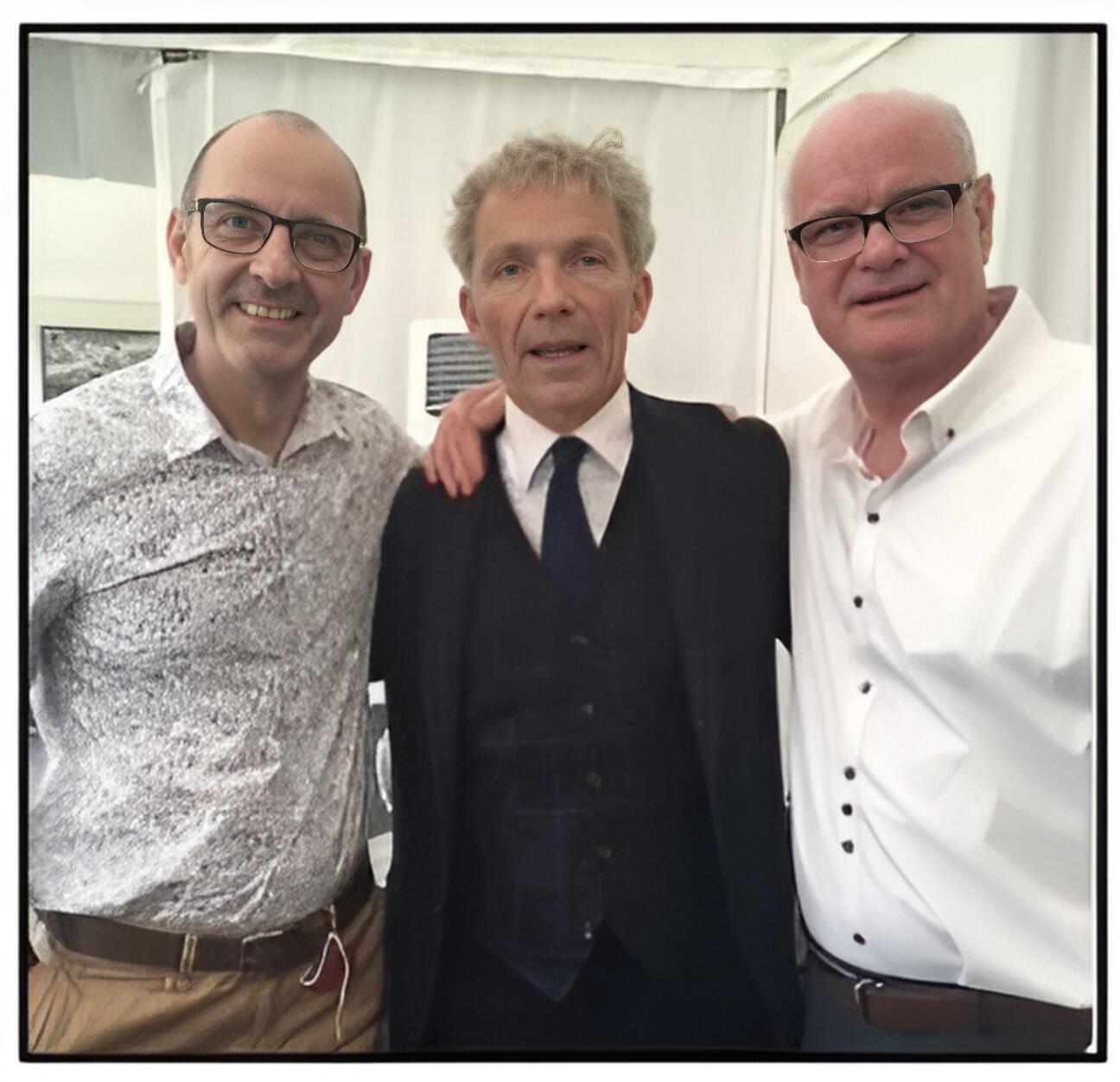Legends of the Turf: John Francome MBE


We have both had the pleasure of meeting the multi-talented and irrepressible John Francome, MBE, on several occasions. The word "legend" is often overused these days, but in the case of John, it is entirely apt. He has had many different careers as a jockey, trainer, TV presenter, and author and has been highly successful in all of them. In this article, we give you some history, background, statistics, and a flavour of the life and times of one of the greatest jump jockeys ever in the history of National Hunt horse racing.
John was born in Swindon, Wiltshire, on the 13th December 1952. His family had no connections to racing or the racing industry, which makes his achievements all the more remarkable. He did, however, ride his first pony, named Black Beauty, at the age of 6. The first signs of his extraordinary horsemanship and the success that would follow came in 1969 as a show jumper, when he was a member of the British European show jumping team that won gold at the European Championships. His last season as a show jumper proved to be his best when he won the Young Riders’ Championship of Great Britain. A lot more success was to follow. Aged 16, he was apprenticed to the trainer Fred Winter, who was based at Lambourn and stayed with him for his entire 15 year career.
During this time, he rode a total of 1,138 winners. His first winner was on his first ever ride in public as a claimer, on a horse called Multigrey over hurdles at Worcester in 1970, which he won easily. But John, being John, broke his wrist on his second ride at Cheltenham. His last ever winning ride was on a horse called Gambler's Cup at Huntingdon in April 1985. During his illustrious career, he became the champion jump jockey in Britain on no less than seven occasions: 1975-76, 1978-79, 1980-81, 1981-82 (joint champion), 1982-83, 1983-84, and finally in 1984-85 making him the third most successful National Hunt jump jockey of all time. Statistically, he is the most successful jumps jockey of all time, with 131 wins in the 1983-84 season. His 1981-82 win showed the mark of the man when he shared the title with Peter Scudamore by refusing to ride once he had drawn level with his rival, who had fallen and broken his arm towards the end of the season in April.
At times, John was a rebel, but always one with a cause. He was the first top jockey to have long hair and a healthy disregard for the pomp, ceremony, and most of all authority in the horse racing world, which at the time came in spades. He once called racing stewards "Cabbage Patch Dolls" and it’s more than fair to say he was racing's first rock 'n' roll jockey who enjoyed living life to the full. Also, it is a little known fact that he was responsible for the introduction of the body protector for jockeys in 1979. He was also ahead of his time, and single-handedly, changed how jockeys rode by applying the skills he had gathered in his show jumping days to create his unique style of race riding. In an era where jump jockeys gave it everything they had: hands, arms, legs, and whip, going everywhere he was the absolute polar opposite. Neat, still, tidy, and economical in the saddle, which on a lot of occasions negated the need for the use of the whip and brought the best out of the horse by riding hands and heels at the finish.
His greatest ride is the widely acclaimed masterclass on Sea Pigeon, trained by Peter Easterby, in the Champion Hurdle at Cheltenham in 1981. This is where he demonstrated his confidence, coolness, timing, and pure natural ability to hold off his run well after the final flight, arrive late, and still win the race going away, comfortably under hands and heels. Before this, he won the Cheltenham Gold Cup in 1979, partnering Midnight Court to victory. One of John’s most successful horses was the brilliant Burrough Lad, trained by Jenny Pitman. Together, they won the Hennessy Gold Cup, the Welsh Grand National, and the King George VI Chase. Burrough Hill Lad also won the 1984 Cheltenham Gold Cup, but John was not onboard that day due to his commitments to his trainer, Fred Winter. In that race, he finished as the runner up riding Brown Chamberlin. The big race successes continued when he rode Wayward Lad for Michael Dickinson in the King George VI Chase in 1982. Other notable victories were achieved on Bregawn, The Flatterer, and Silver Buck.
After retiring in 1985, John was awarded the MBE in 1986 for his services to horse racing. He then became a trainer for two years before switching to become a TV presenter for Channel 4’s horse racing broadcasts. He quickly established himself as a popular and respected horse racing commentator who held forthright views and was never afraid to give his opinion when he felt that a horse had been ridden badly. He retired from TV in 2012 after 27 years’ of service.
John then went on to emulate another famous jockey, Dick Francis, by becoming the writer of fictional racing thrillers. He wrote his first book, ‘Born Lucky’ an autobiography, in 1985 and then went on to publish his first novel in 1986, called Eavesdropper. It was yet another successful career as an author with a number of best sellers, with Deadly Finish and Free Fall being two of the most popular. He wrote 25 books in total.
John also works very hard behind the scenes in the racing industry. He succeeded Lord Oaksey in 2012 as the president of the Injured Jockeys Fund and was instrumental in the delivery of Oaksey House in Lambourn and the Jack Berry House in the north of England as centres for jockey rehabilitation. He is currently the Vice Patron of the Injured Jockeys Fund and gives his time generously to this very important cause.
Footnote:
In John’s final season as a jockey in 1985, an absolutely fascinating film was made about his daily routine: traveling to the races, booking rides, schooling horses, etc. This 52-minute film can be seen here:
https://www.youtube.com/watch?v=k-X3Hg10bKk&ab_channel=roderigodetriano
We both highly recommend it.
At his retirement, John Francome had rewritten the history books in terms of his achievements as a National Hunt jockey. John McCririck said he was simply "the greatest jockey". Since then, his numbers have been surpassed, but the sheer talent and natural ability, coupled with the fiercest determination, and phenomenal work ethic in the saddle of horse racing’s first rock ‘n' roll jockey probably never will be.
John had the honour of having a race named after him in 2017. It is the John Francome Novices' Chase, which is run at Newbury in November of each year.


